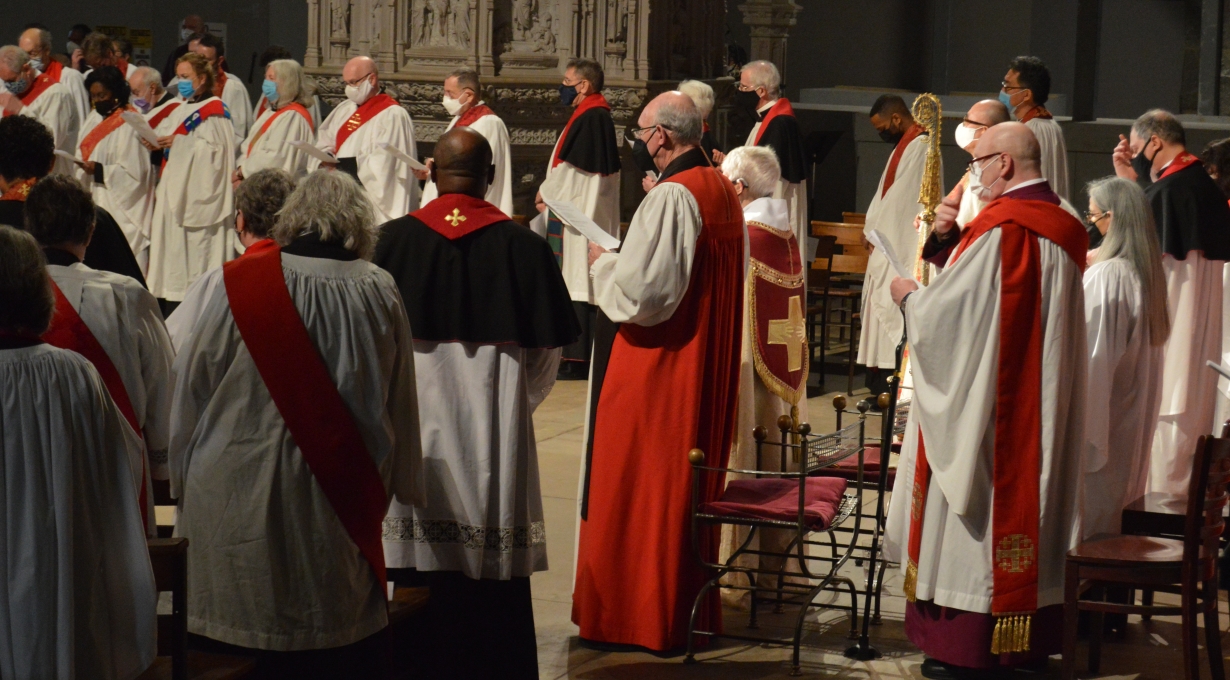An Easter Message from the Dean

Christianity had humble and inauspicious beginnings: a strange star in the sky, a stable in a remote village on the far edge of the Roman Empire, an itinerant preacher, deemed by the authorities as a troublemaker, executed with the complicity of his own faith leaders, and finally improbable claims made by dubious witnesses that he had come back from the dead.
The early church had its beginnings with pretty much nothing: no formal program of evangelism, only the bare bones of organized worship, only the rough outlines of governance and organization, no refined theology. Its members were mostly from the poorer classes and slaves. Christians were at best tolerated, and at worst killed since they were seen as a threat to the established order of governance and society. And yet, within three centuries this marginalized, hated and persecuted group of believers overturned the well-established political constellation and endowed religious traditions of the Roman Empire and the ancient world.
In our own day, with the numbers of practicing Christians diminishing in the west, we must wonder what early Christianity’s secret for church growth was since we in our day appear to have lost the secret.
A new book entitled “The Patient Ferment of the Early Church: The Improbable Rise of Christianity in the Roman Empire” contends people were converted to the new religion not by a new way of believing, but by a new way of behaving. People were converted by the examples of Christian believers following the practices of Jesus, whose own life they claimed set a pattern of actions for his followers: protecting the weak and the impoverished, caring for one another, giving relief to the poor and hungry, choosing non-violence as a way of life, practicing forgiveness and being reconcilers. In other words, the new religion was attractive because it practiced what it preached.
Today, Easter Day, we gather to sing and say, to hear and to add our own voices in saying the ancient creeds and singing the old hymns. And that is right and good. But it’s not enough.
The core of Christianity is belief linked to behavior: Easter calls Christians to practice what we preach. Soon, the Easter Day services will be finished and another Easter Day will be done. Then the work of Christian action begins as we walk in Jesus’s footsteps, by prayer coupled with practice: caring for one another, feeding the hungry, working for justice, fighting inequity. Through those actions the conversion of the world continues as we walk the paths of serving, peacemaking, feeding, healing, forgiving in the power of the risen Christ.
Alleluia! Christ is Risen!
The Lord is risen indeed! Alleluia!